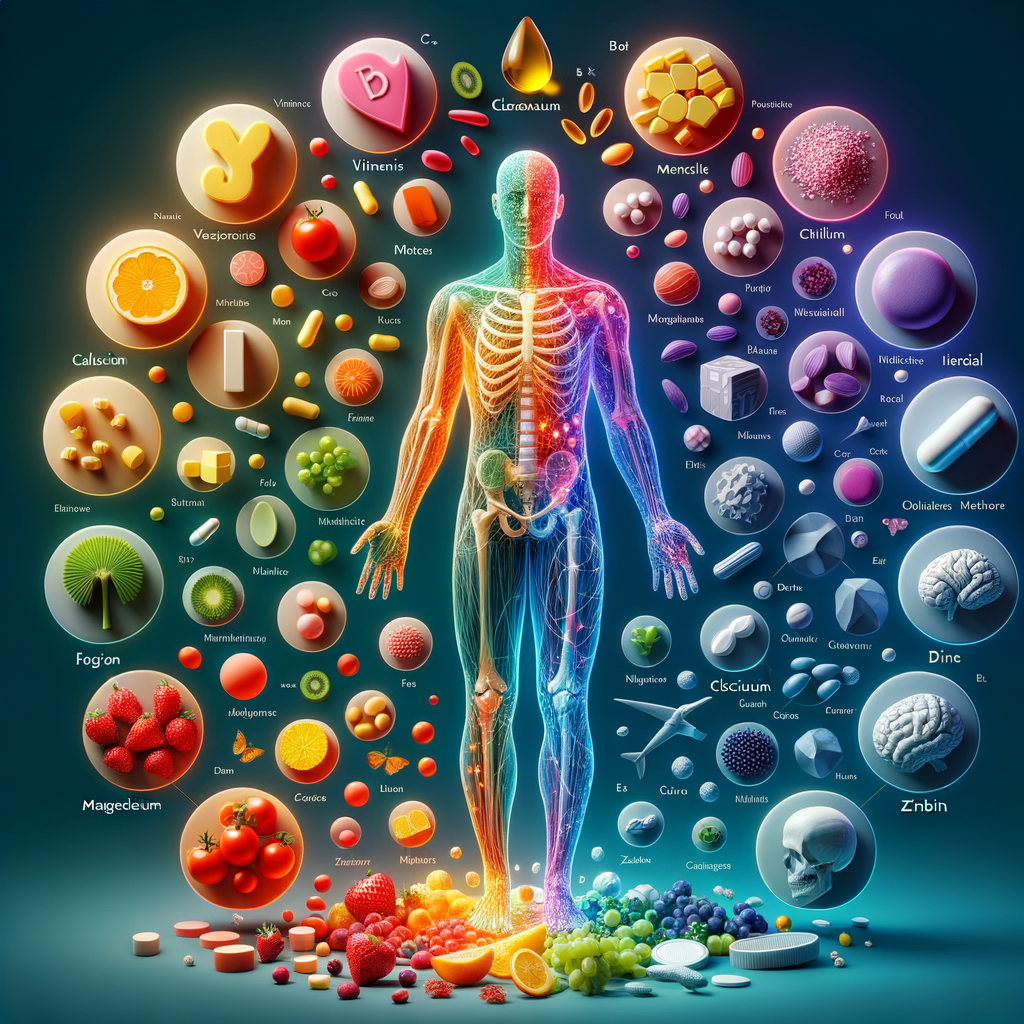Essential Vitamins and Minerals for Overall Well-being
In our pursuit of optimal health, nutrition plays a pivotal role. At the core of a balanced diet lies a collection of essential vitamins and minerals, each serving a unique function in maintaining overall well-being. Understanding these essentials can empower individuals to make informed dietary choices that promote health and longevity.
The Importance of Vitamins
Vitamins are organic compounds that are crucial for numerous bodily functions, including energy production, immune function, and bone health. They can be categorized into two main groups: water-soluble vitamins and fat-soluble vitamins.
Water-Soluble Vitamins
Water-soluble vitamins include the B-vitamins and vitamin C. These vitamins are not stored in the body and must be consumed regularly.
- Vitamin C: Essential for the growth and repair of tissues, it also plays a significant role in collagen production and improves iron absorption.
- B-Vitamins: This group includes B1 (Thiamine), B2 (Riboflavin), B3 (Niacin), B5 (Pantothenic acid), B6 (Pyridoxine), B7 (Biotin), B9 (Folate), and B12 (Cobalamin). They are important for energy metabolism, brain function, and the formation of red blood cells.
Fat-Soluble Vitamins
Fat-soluble vitamins include A, D, E, and K. These vitamins are stored in the body’s fatty tissues and liver, allowing the body to draw upon these reserves as needed.
- Vitamin A: Vital for vision, skin health, and immune function.
- Vitamin D: Essential for calcium absorption and bone health; it can also enhance mood and reduce the risk of certain diseases.
- Vitamin E: Acts as an antioxidant, helping to protect cells from damage.
- Vitamin K: Important for blood clotting and bone health.
The Role of Minerals
Minerals are inorganic substances that contribute to various bodily processes, including nerve transmission, muscle function, and hormone production. Key minerals include:
Major Minerals
These are required in larger quantities and include:
- Calcium: Essential for building and maintaining strong bones and teeth, it also plays a role in blood clotting and muscle contraction.
- Magnesium: Involved in over 300 biochemical reactions in the body, including muscle and nerve function, blood glucose control, and blood pressure regulation.
- Potassium: Crucial for heart health, it helps to lower blood pressure and balance fluids in the body.
Trace Minerals
Trace minerals are required in smaller amounts but are equally important:
- Iron: Necessary for the production of hemoglobin, which carries oxygen in the blood.
- Zinc: Important for immune function, wound healing, and DNA synthesis.
- Iodine: Essential for the production of thyroid hormones that regulate metabolism.
Sources of Essential Vitamins and Minerals
To achieve optimal health, it is vital to incorporate a variety of foods into your diet. Below are some excellent sources of essential vitamins and minerals:
- Fruits and Vegetables: Citrus fruits (for Vitamin C), leafy greens (for Vitamin K and Calcium), and colorful vegetables (for various vitamins).
- Whole Grains: Brown rice, quinoa, and oats are rich in B-vitamins and minerals like magnesium and iron.
- Dairy Products: Important for calcium and Vitamin D.
- Nuts and Seeds: Excellent sources of Vitamin E, magnesium, and healthy fats.
Conclusion
Understanding the roles of essential vitamins and minerals can lead to better health choices and a more nutritious diet. Incorporating a diverse range of these nutrients not only supports physiological functions but also enhances overall well-being.
If one wishes to optimize their diet, consulting a nutritionist or healthcare provider can provide personalized advice based on individual needs. By committing to a balanced intake of vitamins and minerals, individuals can pave the way for a healthier and more vibrant life.


Leave a Reply